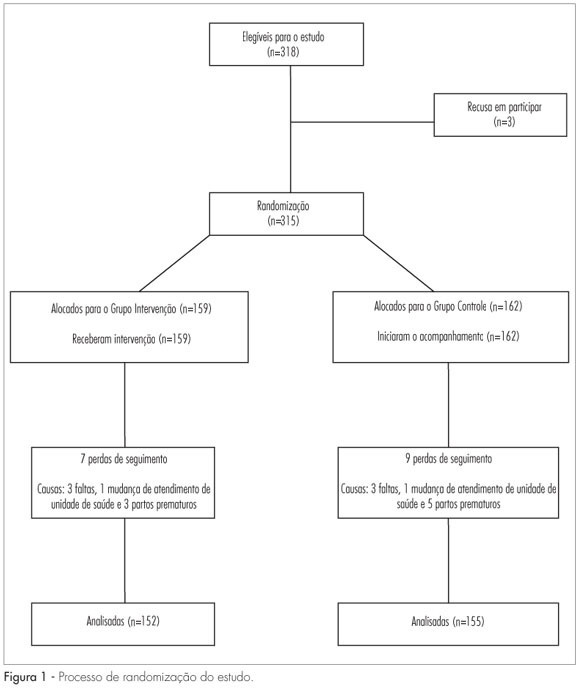Revista Brasileira de Ginecologia e Obstetrícia. 2011;33(1):13-19

PURPOSE: to evaluate the impact of dietary counseling on controlling weight gain in pregnant women, who were served in a public health service facility. METHODS: the study was conducted at a known health unit located in the metropolitan region of the city of Porto Alegre, in Rio Grande do Sul, Brazil. Three hundred and fifteen pregnant women between the 10th and 29th week of gestation were randomized to Control and Intervention Groups. The Intervention Group received dietary counseling according to nutritional status, and pregnant women in the Control Group were instructed to follow the routine of the health service facility. Weight and height were measured, and the body mass index (BMI) was calculated. The pre-gestational nutritional status was determined according to the following BMI criteria: low weight (<18.5 kg/m²), eutrophy (18.5 to 24.9 kg/m²), overweight (25.0 to 29.9 kg/m²), and obesity (>30 kg/m²). The nutritional status during pregnancy was determined according to the BMI curve for gestational age adopted by the Health Ministry of Brazil. Data were analyzed by the relative risk and respective 95% confidence interval, and by the Student’s t-test and χ2 test. Statistical significance was set at p<0.05. RESULTS: the assessment of nutritional status before pregnancy showed that 28.0% of the women were overweight and 4.1% were underweight. In the first and last interview during pregnancy, the rates of prevalence of excessive weight were 36.2 and 46.0%, respectively. The intervention proved to be effective in reducing the rate of weekly weight gain of pregnant women with excess weight (342.2 versus 420.2; p=0.015) and the prevalence of clinical complications (9.2 versus 24.85; p<0.001). CONCLUSIONS: dietary counseling was effective in decreasing the weight gain of pregnant women who were overweight and reducing clinical complications, such as gestational diabetes, preeclampsia, infant low weight, and prematurity in the Intervention Group.
Search
Search in:


Comments